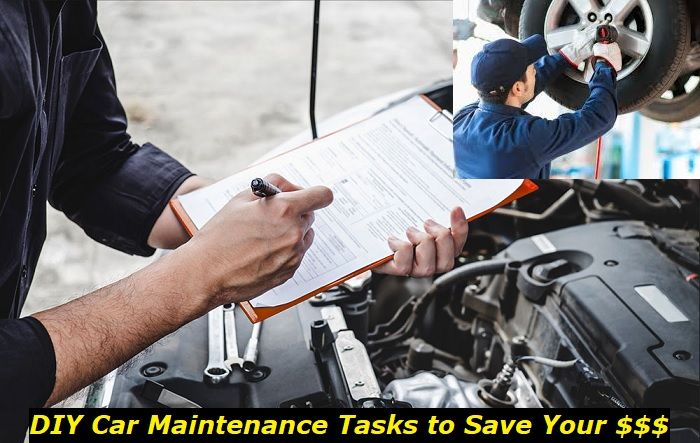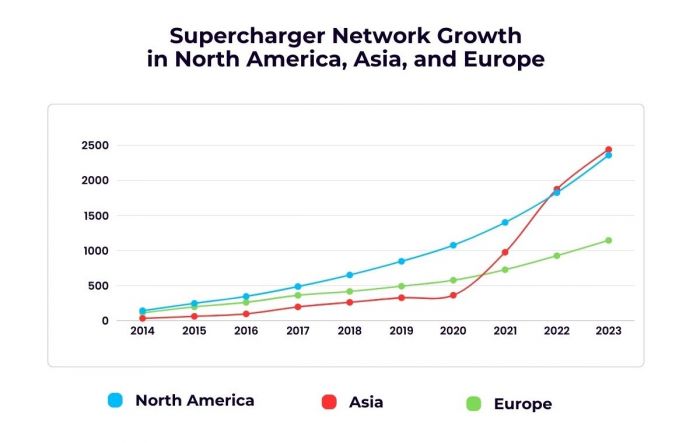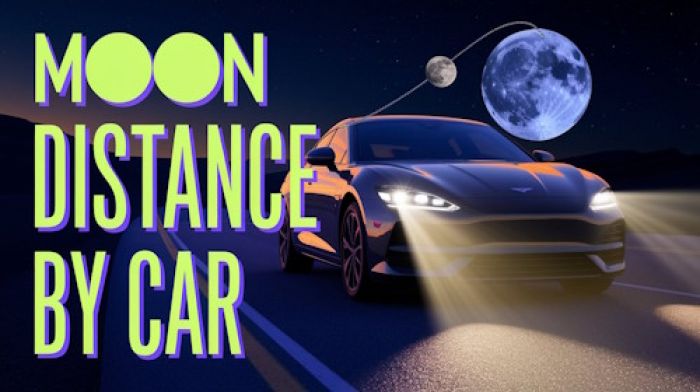Starting the engine in your car requires several important functions to work properly. The electrical power needs to be delivered from the battery to the starter. And the engine must work properly including ignition, fuel supply, and air supply systems.
In this article, I will tell you about the most common issues with starting the ICE vehicle and will also offer the best ways to fix these problems. This article recaps several other articles written in the blog, so you can use the links to enhance your knowledge about a certain problem and ways to fix it.
.jpg)
Engine cranks but doesn't start
The crank-no-start issue is one of the most common things you can have with a vehicle. It means that the starter works well and cranks the engine but there are issues with other systems and the engine doesn't start.
Of course, first of all, you should check if you have fuel in your vehicle. This is a pretty common thing a lot of drivers experience. Then, it's worth checking if there are blockages in the air supply system. Also, verify that the spark plugs have spark.
Think of what has just been changed in your vehicle. Maybe, it's a new battery and the immobilizer is active because the new battery needs to be reprogrammed in the battery control unit.
There are other issues like a broken fuel pump or low compression in your engine. The lack of power may also be the reason, so the battery needs to be inspected. Finally, there may be starter problems. This is especially common when you hear some strange noises while trying to start the car.
Crank-no-start problems highlights:
- Level of urgency:High
- Can you drive?Obviously, no
- DIY inspection:Possible but complicated
- DIY repair:Mostly,impossible
- Price for repair:$350 - $800
- Common Reasons:No spark, no fuel, no air, battery issues, starter problems, electronics
- Ways to fix:Inspect units that may cause this problem one by one
Hard engine starting problems
Another type of starting problem is when the engine may be started but there are certain issues and it starts very hard. This may be accompanied by various anomalies including all kinds of sounds, long starting, shaking, vibrating, revving up high, etc.
In a lot of cases, spark plugs need to be checked. Sometimes, they can have issues with gaps and this may lead to a weak spark. Such sparks won't always ignite the fuel, especially when trying to start the car. Also, the sparks may be flooded with gas and this will also prevent them from working properly.
There may be issues with the engine itself. For example, I know about cases when the timing chain broke while starting. This usually means there are problems with bearings, crankshaft, or other internal parts of the engine.
Also, if it's a carbureted engine, make sure the carb is working properly. It needs to be adjusted sometimes to supply the engine with the needed amount of gas.
Hard engine starting highlights:
- Level of urgency:Medium
- Can you drive?Yes, if it starts
- DIY inspection:Possible but complicated
- DIY repair:Mostly,impossible
- Price for repair:$200 - $750
- Common Reasons:Spark issues, carb problems, compression, engine problems
- Ways to fix:Inspect spark plugs, check compression, verify fuel supply is good
Car has power but won't start
When your vehicle has electrical power and you can turn on lights, radio, etc., it doesn't automatically mean that you will start the car with no problem. This just proves that the battery still has some juice in it, but it doesn't mean that there are no other issues.
First of all, the fact that the lights turn on doesn't mean that there is enough power to start the engine. You may still need to verify that the battery is OK by doing a load test. But if the engine cranks well, you may want to start with some other things that may prevent the engine from starting.
All kinds of cars may have these problems. Jeep vehicles are notorious for crank-no-start issues. And also it's pretty common for Lexus vehicles that have a lot of miles on them.
You will need to focus on engine problems like spark plugs, air supply, fuel supply, or maybe internal engine issues causing problems with compression. This may lead to no-start problems while there is power in your car. Please keep in mind that there is a huge number of issues that may cause this effect.
So, if the lights in your car turn on but the engine doesn't start or even doesn't crank, you will most likely need professional help.
No-start problems highlights:
- Level of urgency:High
- Can you drive?Obviously, no
- DIY inspection:Possible but complicated
- DIY repair:Mostly,impossible
- Price for repair:$250 - $850
- Common Reasons:Fuel or air supply, compression, spark, electronics
- Ways to fix:Check each system that may cause no-start, check electronics
No-crank and no-start problems
If your engine doesn't crank and doesn't start, the problem is most likely with one of two things: battery or starter. Also, wiring may be the issue.
Of course, a non-starting engine should be inspected professionally. But in the case of no-crank issues, you may be pretty sure this is all about the starter. It may be broken or it may not get the power.
One more thing that potentially can cause this issue is the ignition cylinder or button. They may just not send the signal to the starter. In this case, the starter may be jumped to check the actual problem.
Fixing such a problem is not easy. You need to know something about your car's electrical system. But anyway, if you turn the key and nothing happens with the vehicle, the sphere of inspection is pretty wide.
No-crank-no-start problem highlights:
- Level of urgency:High
- Can you drive?Obviously, no
- DIY inspection:Possible
- DIY repair:Possible but complicated
- Price for repair:$150 - $500
- Common Reasons:Power, starter, wiring, ignition cylinder
- Ways to fix:Check the battery, jump the starter, check wiring and connections
Noises when starting the engine
There are all kinds of different noises that accompany starting the engine in your car. Unfortunately, it's not always easy to understand why the engine flutters when starting or what the grinding noise may eventually mean.
When it comes to noises, you should note if they are constant or intermittent. If you hear them constantly, it may mean that the problem is pretty serious. Any kind of noises when starting the engine should be the reason to have your vehicle inspected.
There is no way you can inspect the vehicle easily just by looking at the engine. The noise may come from the starter, flywheel, engine shafts, bearings, alternator, belts, pulleys, etc.
Starting engine noises highlights:
- Level of urgency:High
- Can you drive?Mostly, yes
- DIY inspection:Almost impossible
- DIY repair:Impossible
- Price for repair:$250 - $900
- Common Reasons:Starter, flywheel, engine problems, belts, pulleys
- Ways to fix:Inspect everything that rotates when starting the car, replace the broken units
Starter motor problems
When it comes to starting your car, exactly starter motor issues are the ones to consider. Your starter may get stuck or grind against the flywheel gear. This will lead to intermittent starting problems.
Or the starter motor can get overheated and seize at all. This will require the replacement of the starter motor, repair is not really lucrative.
Also, if you hear a clunking noise when starting, this is exactly the starter motor issue. In most cases, this is all about the relay. You may want to know the starter location in your car and check it when you have doubts about its work.
While in most cases, the starter motor may be actually broken, there are a lot of situations when it's just misplaced because of bolt-hole problems. Keep this in mind, too.
Starter motor problems highlights:
- Level of urgency:Medium
- Can you drive?Yes, if it starts
- DIY inspection:Possible but complicated
- DIY repair:Impossible
- Price for repair:$300 - $650
- Common Reasons:Internal problems, gear issues, flywheel problems, mount problems
- Ways to fix:Have it repaired by a professional
Stalling problems after engine start
It's not uncommon for a modern engine to stall right after it's started. In most cases, this is somehow connected with gas. It may be a problem with the fuel supply or you may not have gas in your tank.
This is pretty common for situations when your car starts with starting fluid but then suddenly dies. And this repeats each time. Check the fuel pump and pour a gallon of fuel into the tank. Just in case.
If it's an old carbureted engine, the carb itself may be the reason for this problem. It may not supply fuel to your engine or may prepare the wrong mixture of air and fuel.
If your vehicle shuts off after starting, this may also mean that the immobilizer of other anti-theft systems is in action. You will most likely require professional help.
Engine stalling issues highlights:
- Level of urgency:High
- Can you drive?Obviously, no
- DIY inspection:Possible but very complicated
- DIY repair:Impossible
- Price for repair:$350 - $900
- Common Reasons:Fuel or air supply problems, immobilizer
- Ways to fix:Professional inspection is needed, checkif there is fuel in the tank
Car won't start, brake pedal locked
There is a very popular question about what it means when your car won't start and also when the brake pedal is locked or very stiff. This is not a problem - the brake pedal is stiff because there is no vacuum until the engine starts.
You can depress the brake pedal just a little but it won't act as it always acts. The reason is that the engine isn't working. Once it starts, the vacuum will build up and the brake booster will work as it should again.
So, this is not a technical issue. The problem is with the non-starting engine rather than with the brake pedal that doesn't want to go down.
No-start and stiff brake problem highlights:
- Level of urgency:Medium
- Can you drive?Obviously, no
- DIY inspection:Possible
- DIY repair:Impossible
- Price for repair:$350 - $800
- Common Reasons:Engine won't start, vacuum won't build up
- Ways to fix:Solve the no-start issue, thebrake pedal will be solved automatically
Engine start battery problems
If your battery in the vehicle is pretty old, it may develop issues when trying to start the cold engine (in cold weather). The problem is that when it's cold, the battery degrades faster. And if it's initially not perfect, the cold weather will lead to consequences like hard starting.
Also, if your car hardly starts after sitting for some time, this may also mean that the battery needs replacement.
The usual symptom of a really bad battery is when the engine cranks slowly.
Engine start battery problems highlights:
- Level of urgency:Medium
- Can you drive?Yes
- DIY inspection:Possible
- DIY repair:Possible
- Price for repair:$150 - $250
- Common Reasons:Battery is dying
- Ways to fix:Charge the battery with a tender, replace the battery
Intermittent starting problems
Probably, the worst problems with starting your car are intermittent problems. One day it starts and goes really well. The other day, it won't start at all and you will have to jump-start it or even call road assistance or something.
Unfortunately, there is no cure for such starting issues. The problem is that almost anything can affect your engine and this will most likely be hard to locate. Of course, you will need professional help. But intermittent issues are very hard to diagnose as they may not pop up when you take your car to the dealership or repair shop.
Intermittent starting issues highlights:
- Level of urgency:Medium
- Can you drive?Yes
- DIY inspection:Impossible
- DIY repair:Impossible
- Price for repair:$300 - $600
- Common Reasons:Anykind ofstarting problem
- Ways to fix:Take it to professional mechanics and let them find the solution
Mistakes with starting your engine
Unfortunately, mechanics aren't always clear about some procedures that you should know after serious repairs. For example, starting the vehicle after changing fuel injectors, you should know that this may cause some error codes and the injectors need time to adjust.
When it comes to more serious repairs like head gasket replacement, your engine will need some time to be started and driven properly. This brake-in period is important and will define how long your engine may last.
Also, other types of repairs require starting carefully and understanding some limitations when driving. Always ask your mechanic about such things after any engine repair.
Engine starting mistakes highlights:
- Level of urgency:High
- Can you drive?Yes
- DIY inspection:No need to inspect
- DIY repair:No need to repair
- Price for repair:$0
- Common Reasons:Any engine-connected repair
- Ways to fix:Always drive carefully after repairs, know the limitations
About the authors
The CarAraC research team is composed of seasoned auto mechanics and automotive industry professionals, including individuals with advanced degrees and certifications in their field. Our team members boast prestigious credentials, reflecting their extensive knowledge and skills. These qualifications include: IMI: Institute of the Motor Industry, ASE-Certified Master Automobile Technicians; Coventry University, Graduate of MA in Automotive Journalism; Politecnico di Torino, Italy, MS Automotive Engineering; Ss. Cyril and Methodius University in Skopje, Mechanical University in Skopje; TOC Automotive College; DHA Suffa University, Department of Mechanical Engineering






Add comment